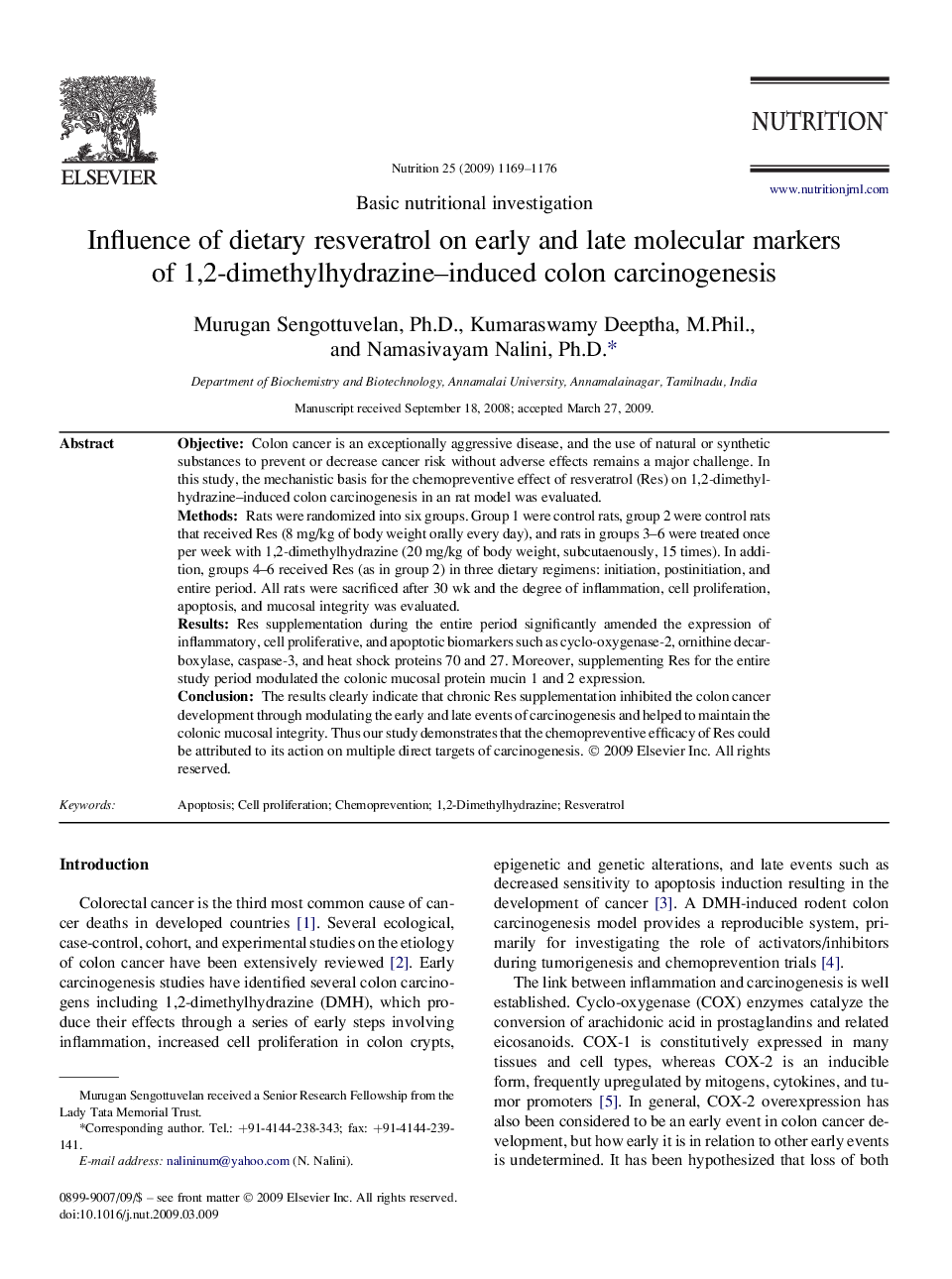| Article ID | Journal | Published Year | Pages | File Type |
|---|---|---|---|---|
| 3277237 | Nutrition | 2009 | 8 Pages |
ObjectiveColon cancer is an exceptionally aggressive disease, and the use of natural or synthetic substances to prevent or decrease cancer risk without adverse effects remains a major challenge. In this study, the mechanistic basis for the chemopreventive effect of resveratrol (Res) on 1,2-dimethylhydrazine–induced colon carcinogenesis in an rat model was evaluated.MethodsRats were randomized into six groups. Group 1 were control rats, group 2 were control rats that received Res (8 mg/kg of body weight orally every day), and rats in groups 3–6 were treated once per week with 1,2-dimethylhydrazine (20 mg/kg of body weight, subcutaenously, 15 times). In addition, groups 4–6 received Res (as in group 2) in three dietary regimens: initiation, postinitiation, and entire period. All rats were sacrificed after 30 wk and the degree of inflammation, cell proliferation, apoptosis, and mucosal integrity was evaluated.ResultsRes supplementation during the entire period significantly amended the expression of inflammatory, cell proliferative, and apoptotic biomarkers such as cyclo-oxygenase-2, ornithine decarboxylase, caspase-3, and heat shock proteins 70 and 27. Moreover, supplementing Res for the entire study period modulated the colonic mucosal protein mucin 1 and 2 expression.ConclusionThe results clearly indicate that chronic Res supplementation inhibited the colon cancer development through modulating the early and late events of carcinogenesis and helped to maintain the colonic mucosal integrity. Thus our study demonstrates that the chemopreventive efficacy of Res could be attributed to its action on multiple direct targets of carcinogenesis.
